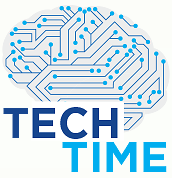“It’s the Wild, Wild West, and we are searching for gold while trying to avoid the snake oil.”
That’s how John Torous, M.D., chair of the APA Smartphone App Evaluation Task Force, described the burgeoning field of technological applications for the management and treatment of psychiatric illness. Such innovations include smartphone applications (thousands of them, many already commercially available) that promise to enhance health and wellness or improve medication compliance, clinical interventions using email or text prompts to remind patients about clinic visits or medications, and the “digital health feedback system”—a pill embedded with a sensor that sends a signal to clinicians and/or family members indicating that the patient has ingested his or her medication.
At the far end of the technological vision is the idea of using all manner of data about a patient gathered more or less continuously in real time from a smartphone or other handheld device.
“There are so many people doing so many different things, and so much commercial interest outside the academic research domain, that it’s kind of a free-for-all right now,” Torous told Psychiatric News. “I think it’s a field that is still nascent. It’s easy now to see the potential—we now have the technological capacity to collect a lot of data that could theoretically help patients and improve care. But just because we can collect it does not mean that such digital data are valid or even useful.
“We don’t have the efficacy data, and there are enormous unanswered questions surrounding privacy and ethical concerns, how such technologies would fit into clinical workflows and into payment systems, and countless other questions. We see how powerful technology can be, but I think there is a danger that the potential is overpowering the ability to answer some of these questions.”
Torous is a clinical fellow in psychiatry at Harvard Medical School and senior resident in psychiatry at Brigham and Women’s Hospital and Beth Israel Deaconess Medical Center. The vice chair of the APA Smartphone App Evaluation Task Force is Steve Chan, M.D., M.B.A., a PGY-4 psychiatry resident at the University of California, Davis. The task force is a component of the Committee on Mental Health Information Technology.
Torous told Psychiatric News that Beth Israel Deaconess Medical Center has initiated the Digital Technology Improving Mental Health Effectiveness (D-TIME) project to focus on education, outreach, and clinical effectiveness of new connected tools like smartphones and wearable devices. The goals will be to offer unbiased and evidence-based clinical knowledge that both patients and clinicians can use to best utilize digital technologies in safe and effective ways, he said.
“I think we need to do a lot more clinical research,” Torous said. “We need to have the same rigorous standard for apps as we do for a new medication. That’s where APA is of critical importance and can provide an important leadership role in helping to encourage and guide clinical research in this field.”
In an editorial in JAMA Psychiatry (December 16, 2015), Torous and coauthor Justin T. Baker, M.D., Ph.D., described the promise of technology to transform mental health care and the challenge of bringing psychiatric expertise to bear on these innovations to—as Torous suggests—find the gold and avoid the snake oil. (Baker is an instructor in psychiatry at Harvard Medical School and director of the Laboratory for Functional Neuroimaging and Bioinformatics at McLean Hospital.)
“By developing systems to capture and quantify interpersonal dynamics, clinicians and patients should expect nearly instantaneous … feedback about a patient’s psychiatric condition following a clinical encounter,” Torous and Baker wrote. “[A] continuous stream of fluctuations in thought and behavior … can be tracked in real time by a caring physician who can then detect subtle changes and potentially intervene in life-saving ways.”
But Torous and Baker added that “without individual psychiatrists and the field at large making a concerted push to drive the technology forward, rather than passively adopting the tools generated by engineers,” these innovations will not achieve their potential.
The potential is undeniable. Importantly, technology in the form of smartphones is now widely available, at least in the United States. Torous and colleagues published a paper in Schizophrenia Bulletin (September 22, 2015) showing that mobile phone ownership has been significantly increasing since 2007; the rate of ownership among patients with schizophrenia is more than 81 percent. Moreover, they reported that the majority of patients are in favor of using mobile phones to enhance contact with services and support self-management.
Torous said that the area of medication compliance is particularly ripe for technological intervention, as is—a little bit further down the road—the use of smartphone apps to monitor symptoms.
Symptom monitoring can involve the collection of “active” data—survey information that requires a patient to do something with a smartphone or other device—or “passive” data that can be collected continuously in real time without the patient having to do anything at all.
Collection of active survey data through technology—however much more robust it may seem to be potentially—is subject to all of the pitfalls and subjective biases of standard survey data. Passive data, in contrast, can be free of those problems, while offering that “continuous stream of fluctuations in thought and behavior, quantified against past trends and calibrated against large databases” that a caring clinician can use to make potentially life-saving interventions.
Yet the latter, as a moment’s reflection reveals, is replete with ethical and privacy concerns that the field has not yet begun to tackle. Torous said that psychiatry must help address these issues before the field can “go there.”
Torous and colleagues at Harvard are collaborating with data scientists at the Harvard School of Public Heath to conduct pilot studies on the collection of active and passive data from patients with schizophrenia and correlating the data with traditional clinical assessments.
Torous said this kind of effort, bringing psychiatry together with experts in data science, points the way toward a future when the promise of technology can meet clinical reality. “We are doing the equivalent of early basic research to see how patients react to this and what data can be collected that are valid and might be clinically useful,” he said. ■
“Why Psychiatry Needs Data Science and Data Science Needs Psychiatry: Connecting With Technology” can be accessed
here. “Mobile Phone Ownership and Endorsement of ‘mHealth’ Among People With Psychosis: A Meta-analysis of Cross-sectional Studies” is available
here.


